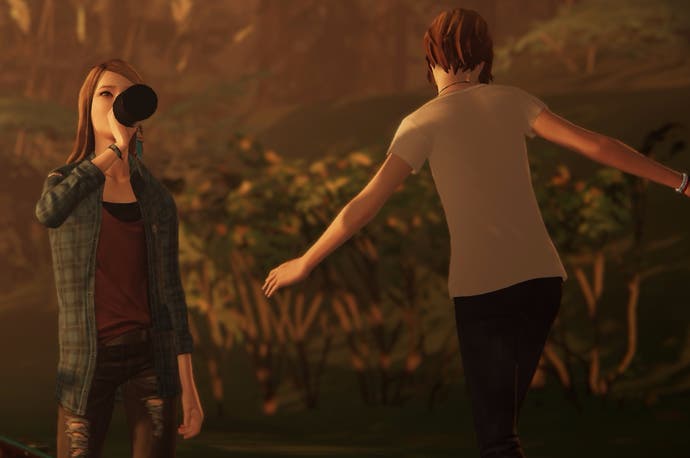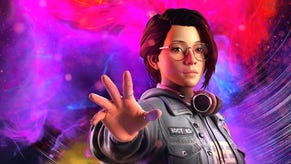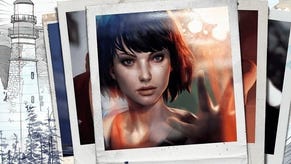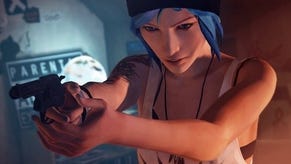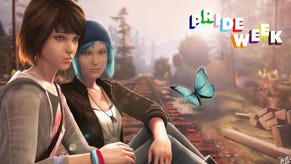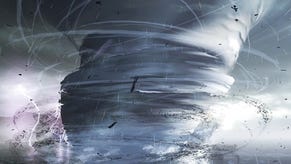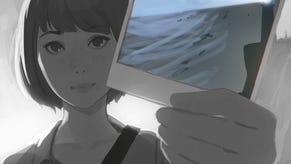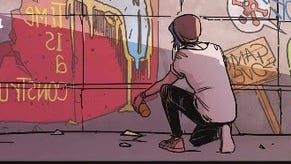Life is Strange and the pleasures of being someone else
Hella is other people.
Spoiler warning! This article discusses events in episode one of Life is Strange: Before the Storm. Please don't read it until you've finished your own playthough.
My favourite scene in the new Life is Strange game is probably a bit meta. High up on some swoonsome Oregon look-out point, Chloe and Rachel, two students from Blackwell Academy who are bunking school, coax one of those viewfinder telescope things to life and focus in on the people enjoying their lunch breaks far below them. As the player shifts gaze from one person to another, Chloe and Rachel provide voices, and a bit of potential insight into these silent, distant lives. A guy in a suit eating fries on a picnic bench is escaping a constrictive diet regime back home. A father and son at a barbecue grill are preparing for a child sacrifice.
There is something dizzying about acting going on here: Chloe and Rachel are trying out different personalities as they take in the world, but even away from the viewfinder, when they have been chatting to each other on the train ride out here, for example, they are still exploring various versions of themselves. This is what the early days of friendship are like sometimes, I think, in those rare cases when you realise that a friendship is going to be very intense and very important. At this point, Chloe and Rachel only really know each other from their social facades - Rachel is school royalty, Chloe is the person who gives zero f***s - so what follows is a constant dance of recalibration, as they try to comprehend one another, and as they try to decide which aspects of themselves they can afford to reveal.
As Aoife pointed out earlier this week, it is so beautifully done: tender, spiky, tentative and then painfully honest. Rachel, a character who I assumed that I knew somewhat, even though she was dead throughout the full run of the first game, is a revelation in the flesh: the generous and dangerous friend you long to have just for yourself. A point is being made, and elegantly: that once we are gone, the versions of ourselves that live on in others are imperfect replicas, partisan efforts riddled with vital absences.
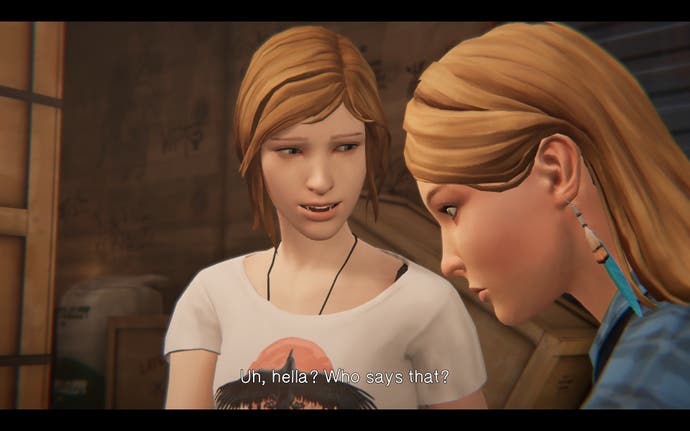
But Chloe is a revelation too, and this I did not expect. I struggled with Chloe throughout the first game, and I now realise that I made the mistake that everyone at Blackwell has made: I mistook a cliched facade for a cliched personality. Here you get a better insight into the personality. How could you not? This time around you're sat inside Chloe's head. Not quite in the driving seat, but gloriously off-centre somewhere: you hear an internal monologue which is hers and not yours, and yet you can choose the direction it takes at certain points, just as you can choose whether to search through someone's schoolbag as you fetch it for them, or whether to hand Chloe's hated future-stepdad the wrenches he's asked for, or make him work for them a little more.
Another relationship of tentative moments, I think. For the course of the first episode of the new Life is Strange, I have been struggling with my new role as the operator of someone who is nothing like me. This is what I only now understand about Chloe, really: she is bold in ways that I could never be, and she does things that I could never do. And her life is painful in ways that mine is not. When she gets a knock-back from a bouncer at an out-of-the-way gig she wants to attend, she can't think of going home, feeling embarrassed about the whole thing, and so I find myself without the only in-game option that comes naturally. When she borrows Rachel's nail-file - when I made her borrow it - to pry open the coin slot of one of those viewfinder things up on the lookout spot, I winced as she then discarded it as soon as she had found a use for it. I winced, and then I think I may have had an insight into her - into the angry, defiant way a proud, private person behaves when they are thinking about opening themselves up to someone else.
How much easier this was when I was in Max's head, I guess. And that's another revelation: that I found Max easy to control because there was not as much distance between the kind of person she is and the kind of person I am. Chloe is much more of a reach, and perhaps this means that the new Life is Strange will be even richer than the first, because I am travelling further and further into the act of being someone else. Or almost being them. As much as I am allowed - by the game, and by my own instincts.
There is a final layer to this. As I learn to work with Chloe, and as Chloe learns how to spend time with Rachel - and as the actors back at Blackwell learn their lines for a school production of The Tempest while the indoors kids splutter through the improv of a D&D campaign - a new developer is finding out how to make a Life is Strange game. This is a different proposition to the first, and it was always going to be. And perhaps that is part of its richness.
